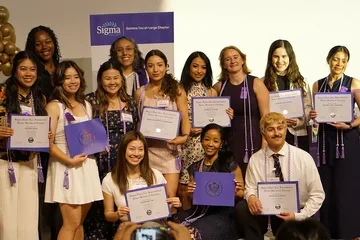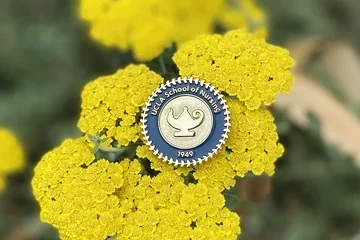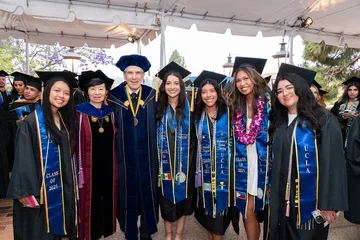UCLA program provides campus jobs, career support for people with autism
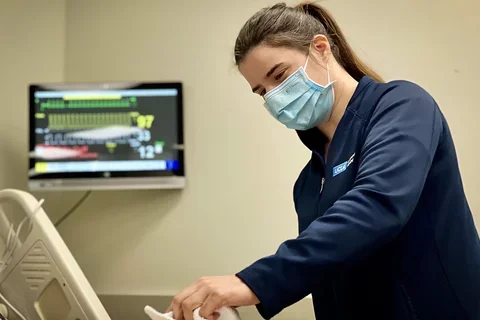
Sasha Karlin is an assistant in the UCLA School of Nursing simulation lab, where she not only helps manage inventory, but also arranges mannequins and equipment so that nursing students can practice responding to various medical scenarios.
Steven Asidilla is a baker’s assistant in UCLA’s De Neve Residential Restaurant, where he adds filling to pastries, places raw cookie dough on trays and sprinkles decorations on cakes, as well as helping his coworkers lift heavy bins of batter.
And Andrew Levin is an administrative assistant in UCLA’s accounts payable department, handling and indexing invoices.
All three are supported by a collaboration between UCLA and Premiere Living Services, an agency that places people with autism in entry-level jobs. In 2019, the program was formalized as the Supportive Training and Employment Project.
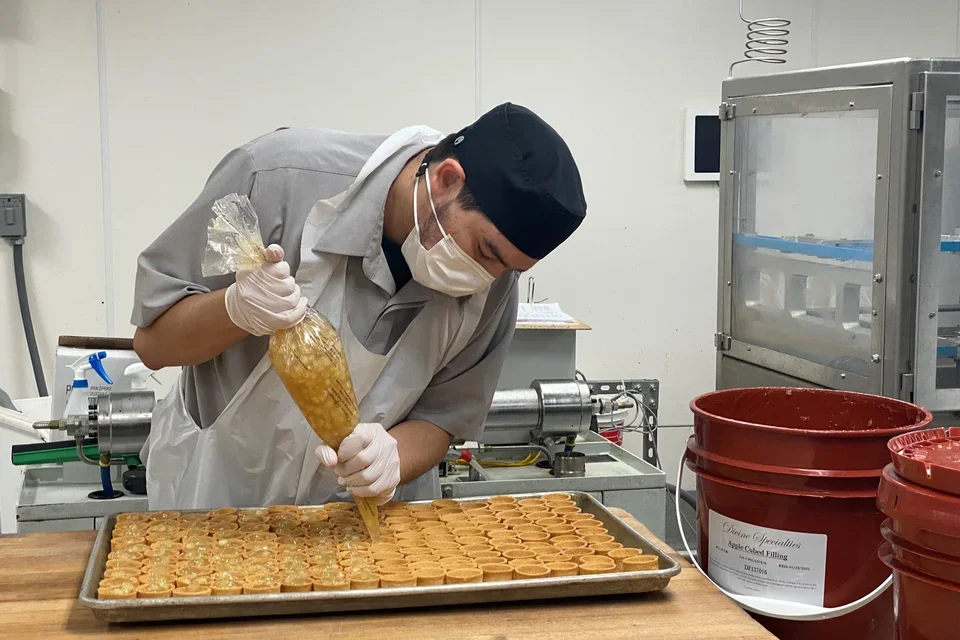
STEP, which is managed by UCLA Campus Human Resources, matches employees to opportunities at UCLA and supports their advancement and retention, and it funds the matching of job candidates with UCLA supervisors who have expressed interest in the program. A job coach visits employees almost every day for about an hour.
The collaboration has supported the hiring of 11 UCLA employees. Although there was a lull in activity during the COVID-19 pandemic, the program’s leaders hope to bring more staff to campus in the near future. As with other employees who begin working on campus through temp agency contracts, people hired through the partnership may have opportunities to become directly employed by UCLA.
Dr. Linda Demer, a UCLA professor of medicine, physiology and bioengineering, is one of the founders of the partnership. The instructor of a UCLA course called Perspectives on Autism and Neurodiversity, Demer said the unemployment rate for autistic people is as high as 85%.
According to Demer, discrimination, stigma and ignorance often cause unemployment or underemployment for autistic professionals, but research has shown that people with autism can be up to 140% more productive than neurotypical employees when they are properly matched to jobs.
For some people with autism in the workforce, difficulty picking up on social cues from coworkers or customers can be a challenge; for others, a work environment that is either too stimulating or not stimulating enough can present a hurdle. But professionals on the autism spectrum often bring valuable strengths to the workplace, Demer said, including the abilities to understand complex systems and independently focus on tasks, as well as reliability and loyalty.
Levin, 30, said his work at UCLA is a good fit, especially after the noise and constant activity he was surrounded with during his previous job at grocery store. “I appreciate the routine and quiet of an office job,” he said. “Also, the quiet and solitude of working remotely works well for me.”
In addition to her job at the nursing school, Karlin, 29, also works part time at the Wooden Center, managing capacity in the workout rooms and monitoring covid protocols. She said she enjoys interacting with UCLA colleagues and meeting students.
“I like working at UCLA because I have had so many positive working experiences with so many people on campus,” she said.
Asidilla, 30, worked at the UCLA School of Law Library from 2018 to 2020, reshelving books that were out of order. He said he values jobs that keep him physically busy.
“I really like working at the UCLA bakery because I get to be on my feet and be moving around,” he said.
Allen Loya is the primary job coach for the employees placed at UCLA through the program. An Army and National Guard veteran who served in Afghanistan, Loya helps employees develop “soft skills” — how best to communicate with colleagues, how to accept constructive criticism from supervisors or coworkers, how to dress — as well as with the specific skills required for their jobs.
“Allen has pretty much been there from the time I started at UCLA and has been a great supporter to me ever since,” Asidilla said. “He always kept me on task if I ever was spacing out, asking everyday if I was OK and always being there to listen if I needed to vent.”
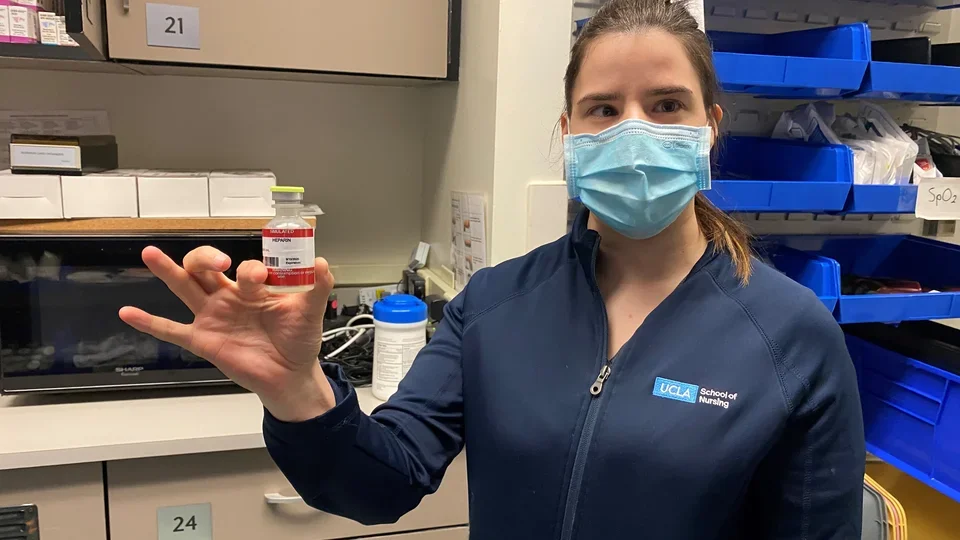
Loya and Michael Galvan, the founder of Premiere Living Services, also help employees identify new opportunities and new environments to work at UCLA.
“Michael and Allen helped me by telling me what to expect from the School of Nursing and they helped me set up my work schedule for the first three months,” said Karlin, who previously worked in the mailroom in the department of pediatrics at the David Geffen School of Medicine at UCLA. “They recommended me to my new supervisor, telling her what a great worker I was and how excited they were for me to start this new opportunity.”
Karlin, Asidilla and Levin all said that their campus jobs offer benefits that go well beyond their paychecks.
For Karlin, working at the nursing school has given her insights about health care that she can discuss with family members; one of her parents and a sibling are surgeons.
Asidilla said his experience has provided a springboard to greater independence. After he became a full-time UCLA employee, he and a friend were able to rent an apartment in the San Fernando Valley, close to a bus line that he rides to work. He also is teaching himself American Sign Language so he can better communicate with a deaf coworker.
“I especially enjoy being part of a team that is full of good, fun people,” he said. “As a bonus, the benefits allow my family and me to sleep well, knowing I have a good future here at UCLA.”
And Levin said he appreciates the sense of purpose that working every day brings to his life: “We all need something to get us out of bed in the morning.”
In addition to Demer, UCLA faculty and staff members who helped form and support STEP are Bill Propst, Stephen Yeazell, Dr. Martha Jura, Michael Beck, Lubbe Levin, Linda Gaddie and Hazel Chun.
